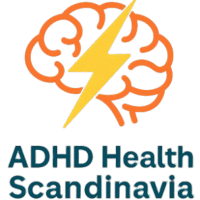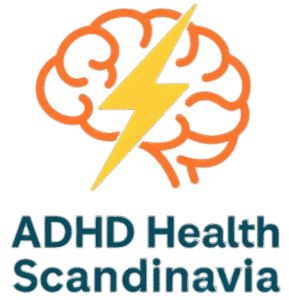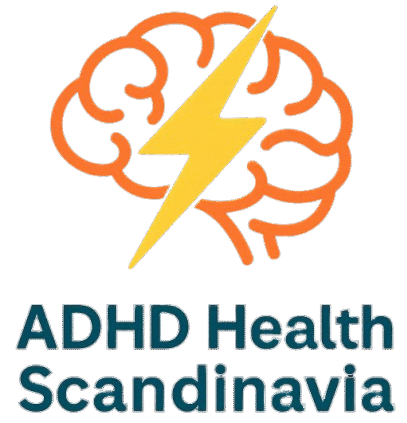Home > Service
Career & Study Support

Career & Study Support
Many people with ADHD struggle with planning their studies and building a career, as focus, time management, and organization can often be challenging. Career & Study Support is designed to help you develop effective learning strategies, exam preparation methods, and workplace routines. Together, we will work step by step to build confidence, leverage your strengths, and create a solid foundation for success in both academics and professional life.
Career & Study Support (ADHD-friendly)
Get unstuck. Build routines that last.
Practical, step-by-step support for students and adults with ADHD: focus, planning, exams, job search, interviews, and everyday work/study routines that actually stick.
Outcomes You Can Expect
Study & Work Routines
- A simple daily system for tasks, notes and deadlines (no overcomplicated apps) Instead of overwhelming apps,. we set up a 3-step board: To-Do → Doing → Done. Everything is visible at a glance, so no task gets lost. We also use daily Top-3 priorities to cut through the noise.
- Clear study plan for the next exam or project with realistic time blocks. We break your material into small study blocks. Each block has a clear start and end, with short recall sessions. This way you can see progress daily, and avoid last-minute cramming.
- Time blindness fixes (timers, anchors, visual schedules). Many with ADHD underestimate time. We solve this with visible timers, “time anchors” (tasks linked to meals or breaks), and a weekly calendar view that shows where your time really goes.
- Less procrastination with tiny-step breakdowns and quick rewards. Big goals feel impossible, so we shrink them to “nano steps” (2–5 minutes each). Every step gets an instant micro-reward, which keeps motivation alive and builds momentum.
Career Tools
- Job search toolkit (CV/LinkedIn cleanup, portfolio structure, outreach scripts). Job applications can feel overwhelming with ADHD, because there are too many moving parts. We break it down into tiny, doable steps:CV quick cleanup: 1 page, max 6 impact bullets (each shows a real result, not just a duty).LinkedIn profile: clear headline, professional photo, 3-sentence “About” section.Portfolio: doesn’t need to be perfect — 2–3 project links (Google Drive, Notion, Canva) are enough.Outreach scripts: pre-written connection and job inquiry messages you can easily adapt. Example: “Hi, I’m interested in the [role] at [company]. Could we connect?”This turns job hunting from a huge, paralyzing task into small, repeatable actions you can actually finish.
- Interview prep with ADHD-proof answer frameworks (STAR + 30-second pitch). Interviews can be stressful with ADHD — answers get too long, off-track, or scattered. We use short, structured templates to stay clear:30-second pitch: “I help [X] do [Y] so they can [Z]. Recently, I…” → fast, focused self-intro.STAR method: answer every question in 4 steps: Situation – Task – Action – Result. Each step is one or two sentences, so you stay on point.Brain freeze rescue: if you blank, just say: “Let me think for 5 seconds…” — it buys you time and keeps you calm.With these ADHD-proof frameworks, you’ll sound confident and concise instead of scattered
- Workplace/uni accommodations: what to ask for, how to ask (ready-to-use scripts). Many people with ADHD don’t realize they can request accommodations at work or university. Most places allow it — you just need to know what and how to ask. We give you ready-to-use scripts you can copy:“I focus best in 30-minute blocks. Could we set short checkpoints at 10:30 and 3:00?”“To avoid mistakes, I’ll send a bullet summary after meetings — please confirm the key points.”“For deadlines: one mid-point check would help me deliver higher quality.”These requests are simple, clear, and beneficial for both sides. You don’t look “difficult” — you look proactive and professional.
How It Works (Simple 3-Phase Plan)
Assess (30 minutes)
We begin with a fast but focused conversation to map your situation:
What are your current goals (study, career, or daily life)?
What are the main blockers (distractions, procrastination, time blindness)?
What does your typical day look like (schedule, sleep, energy peaks)?
What tools are you already using (apps, planners, reminders)?
In 30 minutes, we get a clear picture of where you are now and what really needs to change first.
Plan (7 days)
Next, we create a practical plan for one week. No overwhelming long-term promises — just steps you can act on immediately:
Define your Top-3 weekly goals that actually matter.
Build a simple daily routine (when to study, when to rest, when to check tasks).
Set up a study/work calendar with time blocks that match your energy levels.
After 7 days you’ll already see whether the plan fits you — and we adjust if needed.
Build & Review (ongoing)
Short sprints, weekly review checklist, and quick optimizations based on what actually worked.
We use short sprints and quick check-ins to keep momentum:
Work in 1-week cycles so tasks never pile up endlessly.
Use a weekly review checklist (10 minutes) to see what worked and what didn’t.
Make tiny optimizations: drop what failed, double down on what helped.
This way, you don’t just get a plan — you build a flexible system that grows with you week after week.
ADHD-Friendly Study System (Plug-and-Play)
1) The Focus Cycle (30–10–5)
Many with ADHD struggle to sit down and stay focused for hours. Instead of forcing long, exhausting sessions, we use short focus cycles to balance deep work with recovery.
- 30 minutes of deep work: phone away, only one browser tab open, background noise minimized. The goal is progress, not perfection.
- 10 minutes of active recall: summarize what you just learned in your own words. This makes the knowledge “stick” much better than re-reading.
- 5 minutes of reset: stretch, drink water, and write down the next step before you stop. This way you always know where to continue.
2) Tiny-Step Task Formula
ADHD brains freeze when a task feels too big. We solve this by breaking every goal into the smallest possible “nano step” that takes under 2 minutes and can be started immediately.
Examples:
- “Write essay” → open the document and paste the outline headings.
- “Study chapter 5” → list 3 key terms and define them in your own words.
- “Fix CV” → rewrite the top 2 bullet points using the STAR format.
Once you start the nano step, momentum carries you forward. Action first, motivation second.
3) Time Blindness Tools
With ADHD, time can feel “invisible” — 10 minutes can disappear or stretch into hours. These tools make time visible and predictable:
- Visual timer: use a countdown timer (on screen or physical) so you see time passing.
- Time anchors: link tasks to events you already do daily (after breakfast, after class, before bed).
- Parking lot: when distracting thoughts pop up, write them on a separate sheet instead of losing focus.
These small habits prevent time from slipping away unnoticed.
4) Memory & Exam Strategies
ADHD brains learn best when information is active, visual, and repeated in small bursts. That’s why we use these science-backed methods:
- Active recall: instead of re-reading, quiz yourself or explain the concept aloud.
- Spaced repetition: review the same material after 1, 2, 4, and 7 days to make it stick long-term.
- Teach-back: explain the topic to someone else (or even to yourself in the mirror) for 60 seconds.
These methods turn passive studying into active learning that lasts.
Career Toolkit (Job Search & Workplace)
CV/LinkedIn Cleanup
Recruiters spend seconds scanning your profile. We make sure the essentials jump out:
- One clear headline: “Role + key strength” (e.g., “Marketing Specialist | Social Media Growth”).
- 4–6 impact bullets: each starts with a strong verb and ends with a result (“Increased sales by 20%”).
- Real tools only: list the apps or skills you actually use, remove the fluff.
- Projects: link to 2–3 real examples (Google Drive, Notion, Canva, GitHub).
Interviews: ADHD-Proof Answers
Long, scattered answers can ruin an interview. These structures keep you concise:
- 30-second pitch: “I help X do Y so they can Z. Recently I…”
- STAR method: Situation – Task – Action – Result. Four steps, four short sentences.
- Brain freeze rescue: if you blank, say: “Let me think for 5 seconds…” — it shows calm confidence.
Workplace & University Accommodations
Many organizations allow adjustments for ADHD, but you need to ask clearly. Here are scripts you can use:
- “I focus best in 30-minute blocks. Could we align checkpoints at 10:30 and 15:00?”
- “To avoid errors, I’ll send a bullet summary after meetings — please confirm the key points.”
- “For deadlines: one mid-point check would help me deliver higher quality.”
What Makes This ADHD-Friendly
- Externalized: everything visible — boards, checklists, timers.
- Low friction: no overcomplicated apps, only simple tools.
- Immediate feedback: quick wins and rewards built in.
- Short loops: weekly tweaks keep you improving without burnout.
Tools We’ll Set Up
You don’t need dozens of apps — just a few essentials that actually stick:
- Calendar for time blocks and weekly structure.
- Task board (Notion, Trello, or even paper) with “To-Do → Doing → Done.”
- Focus timer (physical or app like Forest) to stay on track.
Templates included: Daily Top-3 card, Weekly Review checklist, Study Sprint log, Parking Lot sheet, Interview cheat sheet.
Your First Week (Example Plan)
- Day 1: Define Top-3 goals, set up calendar blocks.
- Day 2: Complete 2 Focus Cycles on Priority 1.
- Day 3: Do 2 Focus Cycles on Priority 2 + one teach-back session.
- Day 4: Quick CV cleanup (15 min) + Priority 3 task.
- Day 5: Mock interview or practice test.
- Day 6: Catch-up block + celebrate with a reward.
- Day 7: Weekly Review — what worked, what to tweak.
Pricing & Format
- One-to-one coaching, 30 minutes (online session).
- Written action plan delivered to your email within 24 hours.
- Optional 7-day check-in (automated message to track progress).
Frequently Asked Questions
Do I need an ADHD diagnosis?
No. These methods work for anyone facing ADHD-like challenges with focus, time, and planning.
What if I’ve tried many apps and nothing sticks?
We simplify everything: minimal tools, maximum results. You’ll keep only what works after one week.
Can I use this during exam season?
Yes. Every method is designed for short, realistic blocks — perfect for busy or stressful times.
What results should I expect?
Most clients report better focus within one week and a fully working routine in 2–4 weeks.
Ready to Start?
CTA: Start now — 30-minute session, immediate start
You’ll be redirected to the One-to-One Coaching page right after checkout. Session begins immediately.




